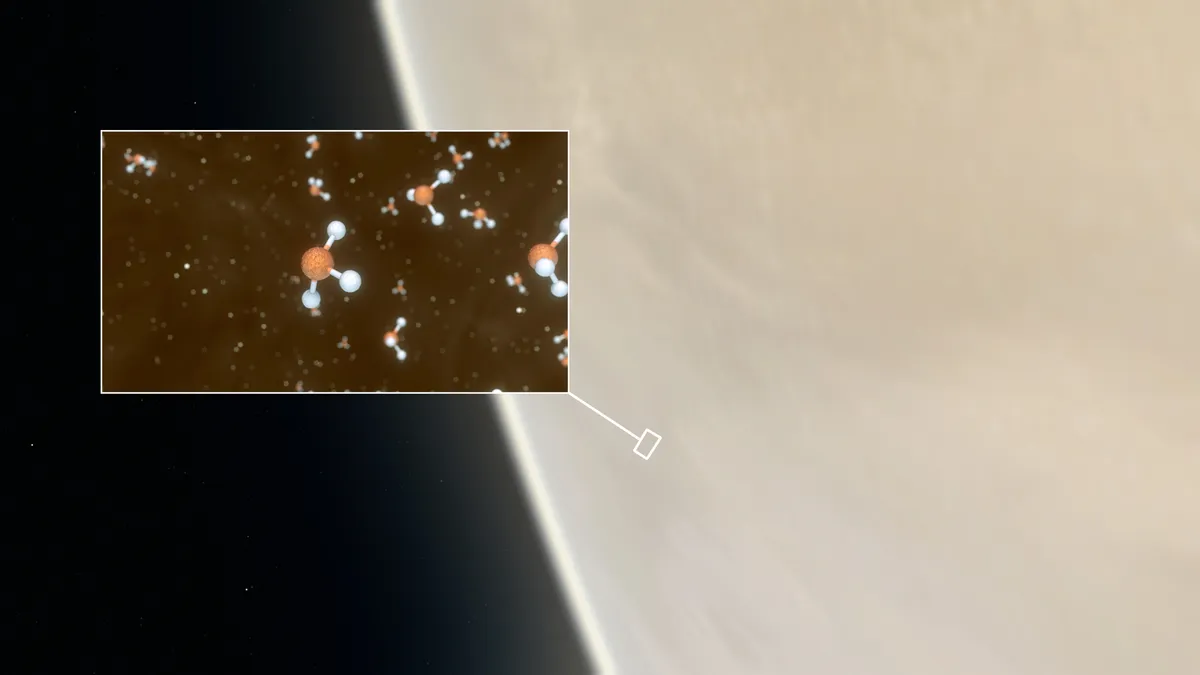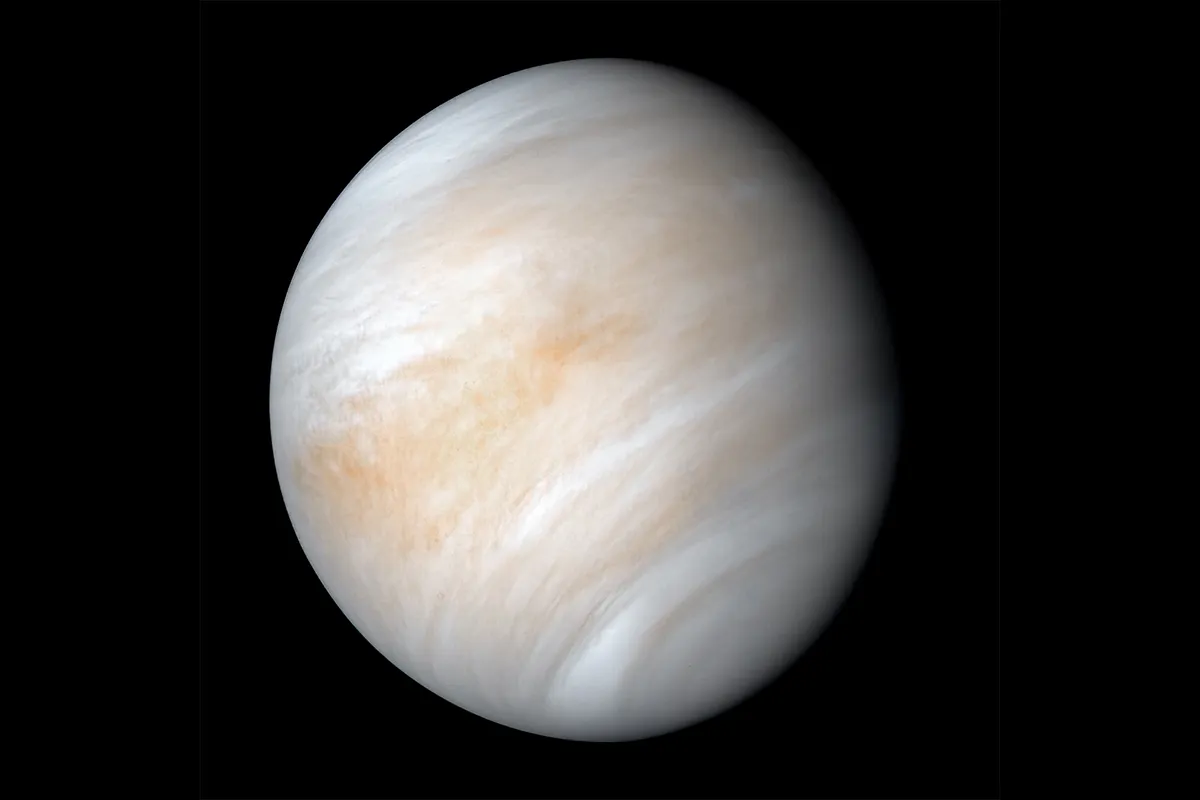Scientists have long speculated about whether Venus could harbour life; whether life could exist on just an inhospitable planet.
Venus's thick, carbon dioxide atmosphere creates a powerful greenhouse effect and the surface is searingly hot (over 450°C).
Indeed, Venus is the hottest planet in the Solar System and is often described as ‘Earth’s evil twin’, so how could life ever exist there?

So while the surface of Venus doesn’t offer any chance of liquid water or organic molecules – the fundamental prerequisites for life – the high atmosphere could offer a habitable environment.
Venus is shrouded in thick cloud layers; between altitudes of 48km and 60km the atmospheric pressure and temperature are similar to those on Earth’s surface.
There’s plenty of sunlight to serve as a power source for life too.

Life in the sulphuric acid clouds of Venus?
The problem, however, is that the cloud droplets are made up of concentrated sulphuric acid.
This is still an exceptionally hostile environment, with virtually no available water, and is orders of magnitude more acidic than that in which extremophile organisms on Earth can survive.
But could the Venusian clouds still support microorganisms using an exotic biochemistry based on organic molecules dissolved in, not liquid water, but concentrated sulphuric acid as a solvent?
The assumption has been that only simple organic chemistry – with limited functionality for supporting the complex molecules and chemical reactions of life – could be stable in concentrated sulphuric acid.
But a team lead by Sara Seager at MIT has been challenging this by testing the assumption with experiments.
Seager is a very active astronomer and has performed a lot of work on exoplanets and their atmospheres.

In recent years, she has been exploring the possibility of life on Venus, including being involved in the 2020 study that made the controversial claim for the detection of phosphine gas in the Venusian cloud decks.
In 2023, Seager and her colleagues showed that the building blocks of DNA and RNA, nucleic acid bases, are in fact stable for at least weeks in the concentrated sulphuric acid environment of the Venusian clouds.
Now, with her own son as the first author, she has published a study on whether amino acids, which build the proteins of life, are also stable.

The acid test
Max Seager, at the Worcester Polytechnic Institute, Massachusetts, and his colleagues ran a very simple experiment that could help answer the question as to whether life could exist on Venus.
The team bought standard preparations of 20 different amino acids used by terrestrial life from a chemical reagent supplier, dissolved them in concentrated sulphuric acid and left them at room temperature for several weeks.
They reanalysed the amino acids after 12 hours, a week and a month, to see which had remained stable, or had become chemically modified.
Even after a month, 19 out of the 20 had remained unreactive or were only chemically modified in their side chain (as can also happen in water) – the backbone of the amino acid molecule remains intact.
As the authors point out, "complex organic chemistry is, of course, not life, but there is no life without it".
These experiments do demonstrate the possibility for biochemistry based on a concentrated sulphuric acid solvent.
Perhaps there is still hope yet for the existence of Venusian aerial life.
Lewis Dartnell was reading Stability of 20 Biogenic Amino Acids in Concentrated Sulfuric Acid: Implications for the Habitability of Venus’ Clouds by Maxwell D Seager, Sara Seager et al. Read it online at: arxiv.org/abs/2401.01441.
This article appeared in the March 2024 issue of BBC Sky at Night Magazine

